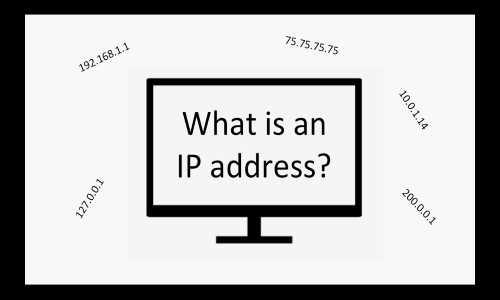What is an IP Address and How Does It Work?
 By
By
It is almost miraculous to see computers delivering
search results within a second. You must have been wondering how your computer
can be identified. A unique IP address is assigned to your device. Every
device that surfs the internet has a unique IP address. No wonder most internet
surfers use VPN and other means to keep their identity and location on the
internet unknown. What’s more, IP address and its working principle have
been explained in detail here. IP Address Explained An IP address is an identifier unique or peculiar to
each computer on a local network or internet. It is a unique string of
characters that uses the internet protocol to communicate over a network. IP means "Internet Protocol"- the set of
rules regulating the format of data sent through the internet or local network.
Also, IP addresses allow devices on a network to share information. An IP
address contains location information and makes devices accessible for
communication over a network or internet. The internet differentiates between computers,
routers, and websites through their unique IP addresses. A typical example of
what an IP address looks like is 195.254.67.92. Therefore, when you surf the internet, right on your
couch inside your bedroom; Your Internet Service Provider (ISP) will allocate a
unique IP address to your device. An IP address makes you get the exact
information you request from the internet. What else you should know about an IP
Address? Internet protocol works similarly to other languages;
devices or computers in any location can communicate using set rules that they
all understand. They can find, send, and exchange information with one another
using these protocols. So, when you go online to check your emails or chat,
your IP address interacts with other devices too. Also, your device connects to
a network linked to the internet which grants your device access to the
internet. When you are browsing the internet from your room, a
coffee shop, etc., your ISP network identifies your location and assigns an IP
address to your device. Whatever you browse on the internet goes through the
ISP, and they route the feedback to you through your IP address. However, you don't have a fixed IP address. By simply
turning your router on or off, your IP address can change. When you visit a
tourist center, a coffee shop, or lodge in a hotel and you take your PC,
tablet, or smartphone with you, your home IP address does come along with you.
The ISP often allocates another IP address to your device. Conclusion The internet functions on IP addresses; Information
goes back and forth among connected computers through IP addresses.
Wherever you go online, your ISP will assign an IP address to your
device. Turning your router or modem on or off can change your
IP address. Finally, you can also contact your ISP to change your IP address or
use a VPN. Guess you don't need to ask what is my IP address after reading
this.






